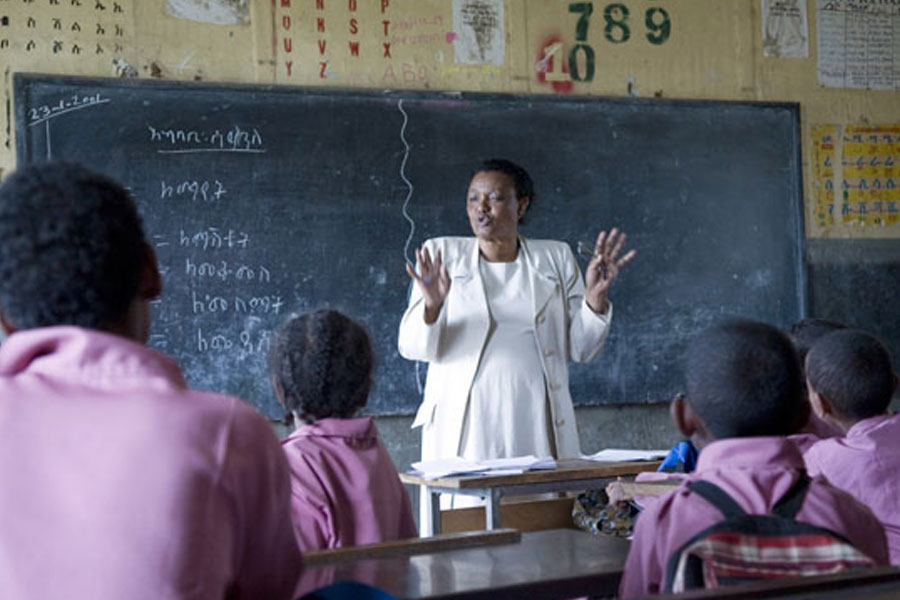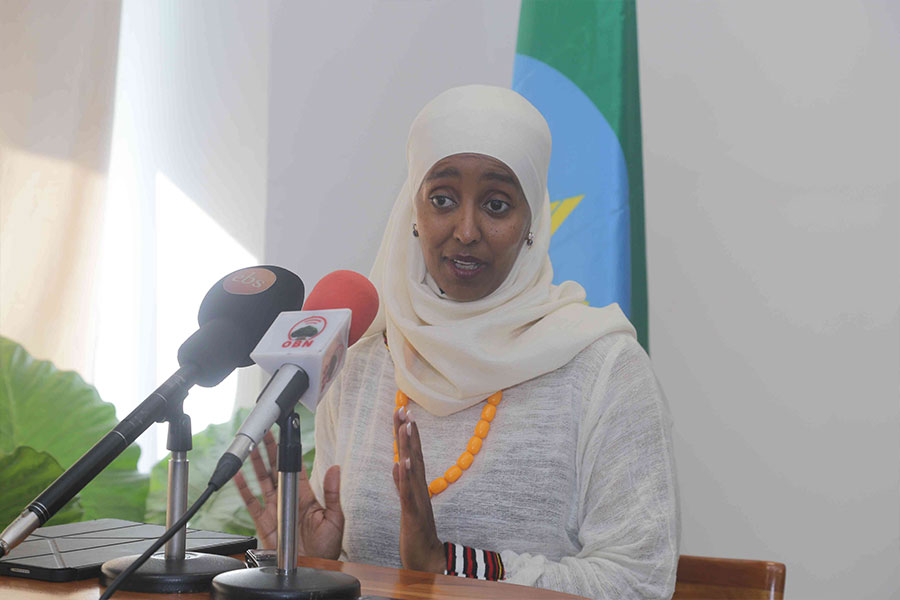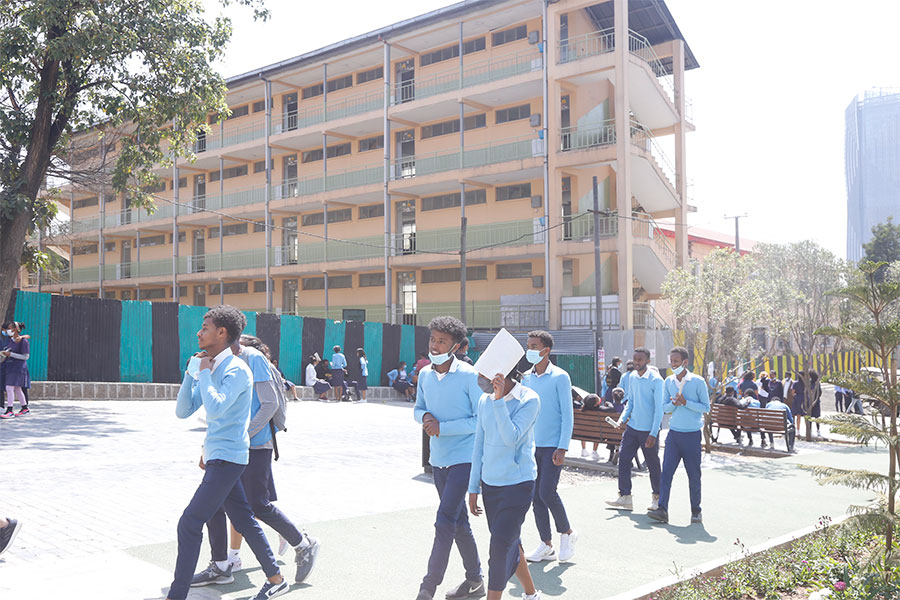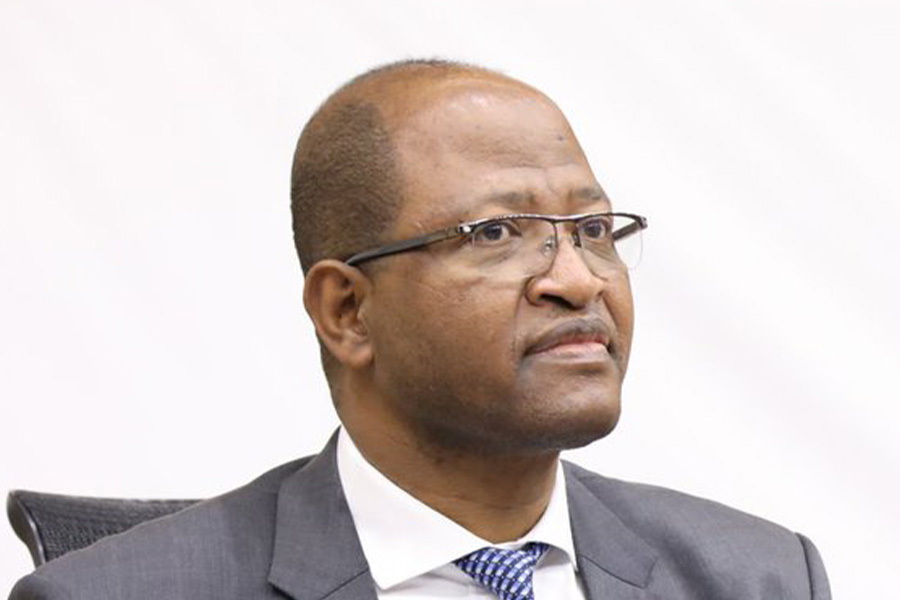
View From Arada | Jan 24,2021
Autonomous state universities will no longer serve as free educational institutions and will subject some students to tuition fees.
According to Samuel Kifle (PhD), state minister for Education, the universities will offer full and partial scholarships following the exam that will be prepared on their own.
The state minister disclosed that during a Parliament session that was called by the standing committee of Human Resource Development, Labour & Technology Affairs to discuss the bill concerning the autonomy of universities.
The federal government recognised the autonomy of Addis Abeba University in August last year. The Ministry forecasts establishing eight universities as independent within two years.
"It's a long process," said Solomon Aberha (PhD), state minister of Education.
The committee members forwarded their concerns that needed clarification.
Mastewal Mekonnen, a member of the standing committee, asked the state minister to consider the economic status of the majority before changing the payment system while the Deputy Chair, Bethlehem Lakew (PhD), said it is focused on securing and mobilising assets rather than institutional strength.
The bill under preparation proposes that universities will be financially stable if they expand their infrastructure and raise their revenue, with less pressure from the government.
Alemayehu Tekelemariam (PhD), lecturer for 30 years in the special needs and inclusive education department, said granting autonomy to the universities is a good step if the management has a proven track record in administration than educational background.
"Skills are essential," he told Fortune.
He observes that university presidents are assigned either for their political allegiance or academic qualification than experience.
Authorities seem to concur with his idea as the bill that requires the appointment of university presidents through an internationally open competition after proving non-allegiance to political organizations was approved by Parliament three weeks ago.
Tasew WoldeHana, president at Addis Abeba University, warns the plan only prevents the presidents from having political affiliations leaving the others. He believes that the restriction should be applied in the lower positions to guarantee the institutions' impartiality.
The Council of Ministers approved the bill in February with the goal of altering the qualifying requirements, the board and the roles of the chancellors, presidents, and vice presidents, in addition to strengthening their financial position and overhauling freedom to the institutions.
The standing committee chaired by Negeri Lencho (PhD) warned that the authority of the chancellor should be reconsidered as it could lead to abuse of power. The bill proposes that the university chancellor will be appointed by the prime minister and has the mandate to approve the incentives to the boards.
However, the state ministers replied that the position is assumed to secure finances and resources rather than taking over the management.
Established in 1997, Jimma University is one of the universities progressing towards becoming independent. It has been designated as a research institution where 40,000 students are enrolled in regular, weekend, summer, and distance programs.
Jemal Abafita (PhD), university president, observes the bill is stricter than before, taking away the decision-making ability of the institutions. Before assuming the presidency three years ago, he served in several positions, from department to directorate head.
The university received 1.8 billion Br for the fiscal year, sourcing up to 24pc of its budget from funder raisers and grants. Over 10,000 people are employed at the university. According to Jemal, the university has not maintained its budget by foregoing several employees and adjusting the salary of the remaining staff.
He said the efforts of universities to generate income through commercial and investment activities should be exempted from tax.
Officials from the Ministry stated that the university board will draft internal procurement and administrative laws following the proclamation approval.
The standing committee members also raised the comments during the Parliament session and stirred the pot in the academic sector.
Two days later, the Minister of Education, Berhanu Nega, appeared in the Parliament to answer the series of questions raised by committee members and university presidents regarding the goal of universities attaining autonomy. He explained that the move asserts their financial & adminstrative independence.
There are 47 public universities under the Ministry with over 61 billion Br allocated budget for the year, with an aggregated 33 billion Br covering recurrent expenditures.
Sewale Abate (PhD), from the finance department at Addis Abeba University, observes the existing system where university students were subjected to paying their costs after learning is not regulated properly.
He believes that institutions will gain more finance through the new framework as they were not entitled to the finance. However, he fears the ability to join universities through scholarships will be limited to the institution's financial capacity. Sewale recommends that a loan payment system be outlined for students that cannot afford the tuition fee.
PUBLISHED ON
Apr 15,2023 [ VOL
24 , NO
1198]

View From Arada | Jan 24,2021

Radar | Jul 01,2023

Fortune News | Jan 14,2023

Fortune News | Jun 08,2024

Agenda | Nov 13,2021

Radar | Jan 12,2025

Radar | Oct 17,2020

Fortune News | Aug 19,2023

Editorial | Jun 29,2024

Radar | Mar 25,2023

Dec 22 , 2024 . By TIZITA SHEWAFERAW
Charged with transforming colossal state-owned enterprises into modern and competitiv...

Aug 18 , 2024 . By AKSAH ITALO
Although predictable Yonas Zerihun's job in the ride-hailing service is not immune to...

Jul 28 , 2024 . By TIZITA SHEWAFERAW
Unhabitual, perhaps too many, Samuel Gebreyohannes, 38, used to occasionally enjoy a couple of beers at breakfast. However, he recently swit...

Jul 13 , 2024 . By AKSAH ITALO
Investors who rely on tractors, trucks, and field vehicles for commuting, transporting commodities, and f...

Jul 5 , 2025
Six years ago, Ethiopia was the darling of international liberal commentators. A year...

Jun 28 , 2025
Meseret Damtie, the assertive auditor general, has never been shy about naming names...

Jun 21 , 2025
A well-worn adage says, “Budget is not destiny, but it is direction.” Examining t...

Jun 14 , 2025
Yet again, the Horn of Africa is bracing for trouble. A region already frayed by wars...